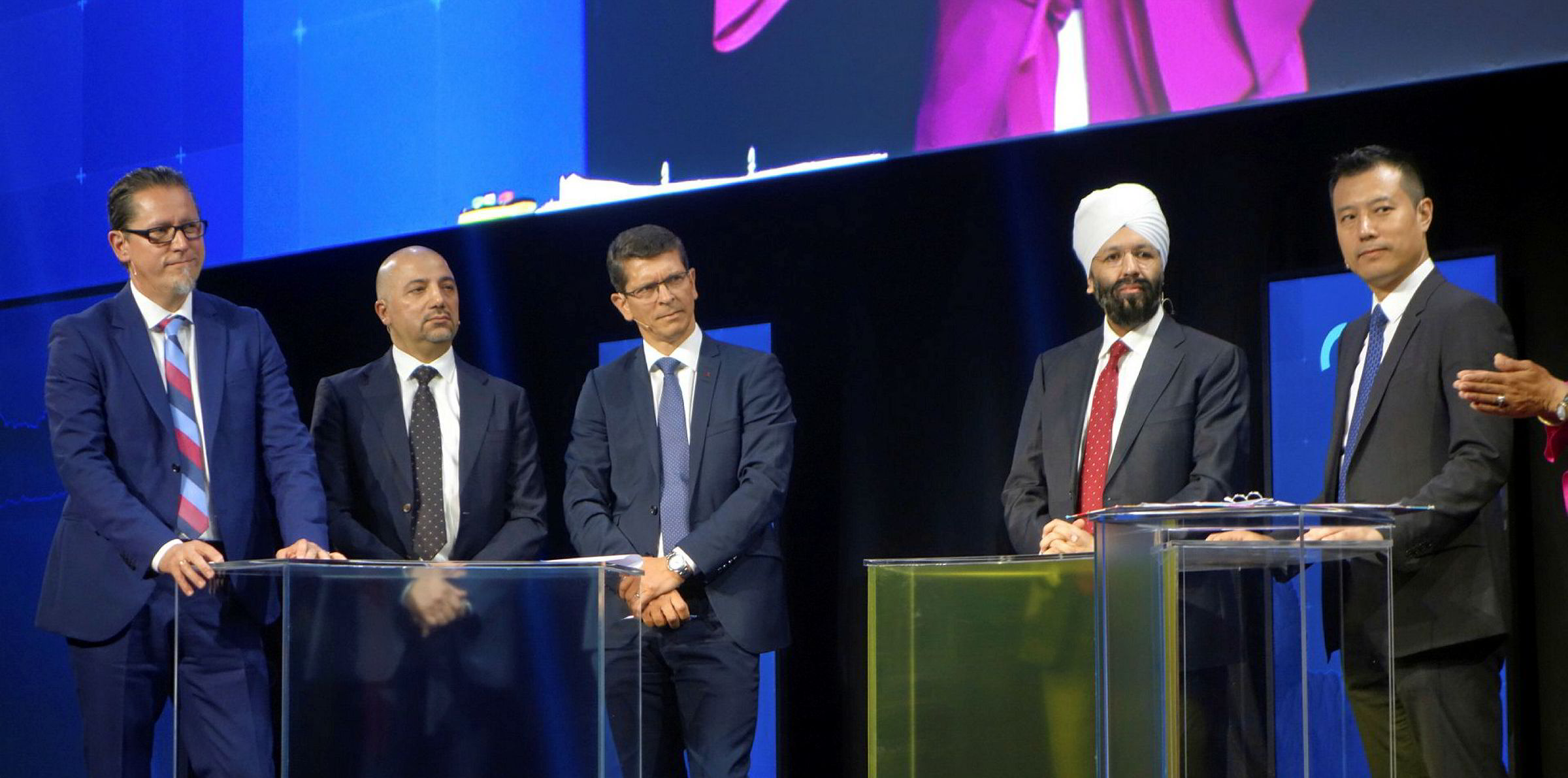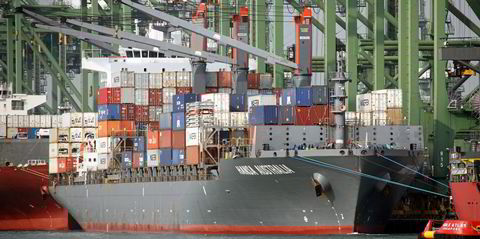Having grown to become one of the world’s largest ship financiers in just a few years, ICBC Leasing (ICBCL) is looking to enter a new area: autonomous shipping.
With the industry experiencing more digitalisation initiatives and tightening environmental rules, China’s largest leasing house is refining its financial model to adjust to the new realities.
Bill Guo (Guo Fangmeng), executive director of shipping finance at the state-owned lessor, told TradeWinds during Nor-Shipping: “We would be willing to provide extra incentives to autonomous shipping projects, such as higher loan ratios.”
The initiative is not about reaping immediate returns, according to Guo. Rather, exposure to artificial intelligence (AI)-based vessel operation systems can prove beneficial to ICBCL’s operation in the long run.
With a fleet of nearly 280 vessels, the financier provides both operating and financial leases, with in-house chartering, sale-and-purchase and newbuilding operations.
While pilot projects for unmanned vessels are few and far between, consultancy firm MarketsandMarkets estimates that the autonomous shipping market will be worth $13.8bn by 2023.
“I don’t think we will see vessels totally unmanned in the immediate future,” Guo said. “The software can give advice on operations, but seafarers are still needed to avoid accidents.
“But the operating systems of smart ships and AI are something very interesting. We’ll be looking to fund one or two ships initially.”
While ICBCL does not plan to impose nationality criteria on such a project, Guo said his company would prefer to have Chinese participants.
“It’s better to have [Chinese involvement], given that China has a large shipbuilding industry and unmanned vessels are an area for development,” he said.
Eco drive
With the IMO’s new bunker rules coming in from 1 January 2020 and emission targets for 2030 and 2050, Guo admitted finding good projects to finance could become more difficult.
For the IMO 2020, while ICBCL is involved with CMA CGM’s 15,000-teu LNG-fuelled boxships, Guo said LNG might not be the long-term solution.
“LNG can be good for 10 to 20 years but, for the IMO’s 2050 emission target, from what I gather it’s not enough,” he said.
Scrubbers — another solution to fulfil the IMO 2020 rules — are also not a target for lease finance.
“We have studied hard on scrubber financing,” Guo said. “But the issue is, it’s essentially an equipment onboard without its own clean title.
“It’s much easier for banks to do corporate loans to fund this. Not really a game for lessors.”
Guo also said he expected shipowners to face more financing costs to meet new regulations.
“Shipowners will need to invest more in things like new fuel technologies to meet the IMO requirements, but freight market conditions won’t change because of that,” Guo said.
“And our calculations of residual values would also be affected as we think some vessels may not be able to meet the new rules in the coming years and decades.
“So our financing terms would be adjusted accordingly … risk control is still our top priority.”
Should the public sector take the main responsibility in funding new marine energy, then?
“I don’t think governments should be footing all the bills … eventually, the new-fuelled vessels should be commercially viable on their own,” Guo said.
“But the governments can tighten the regulations to drive out less-efficient ships.”
Still expanding
While ICBCL managing director Yang Changkun, who oversaw the lessor’s rapid expansion, is leaving, Guo said he expected the company to continue enlarging its business scale.
He said the leasing arm of giant Industrial and Commercial Bank of China (ICBC) is looking to establish overseas offices in London and Hong Kong to serve its clients there in a more timely matter.
“We plan to [have] one or two representatives in each of them by the end of this year,” he said.
“We are also looking at Athens [as another location for an overseas office].
"But since ICBC also plans to set up an office there, our plan should be based on theirs.”
The lessor had a shipping loan portfolio of $12bn as of the end of 2018, and Guo said: “It should be growing a bit this year.”
Click here to keep up to date with TradeWinds' coverage of Nor-Shipping 2019.






